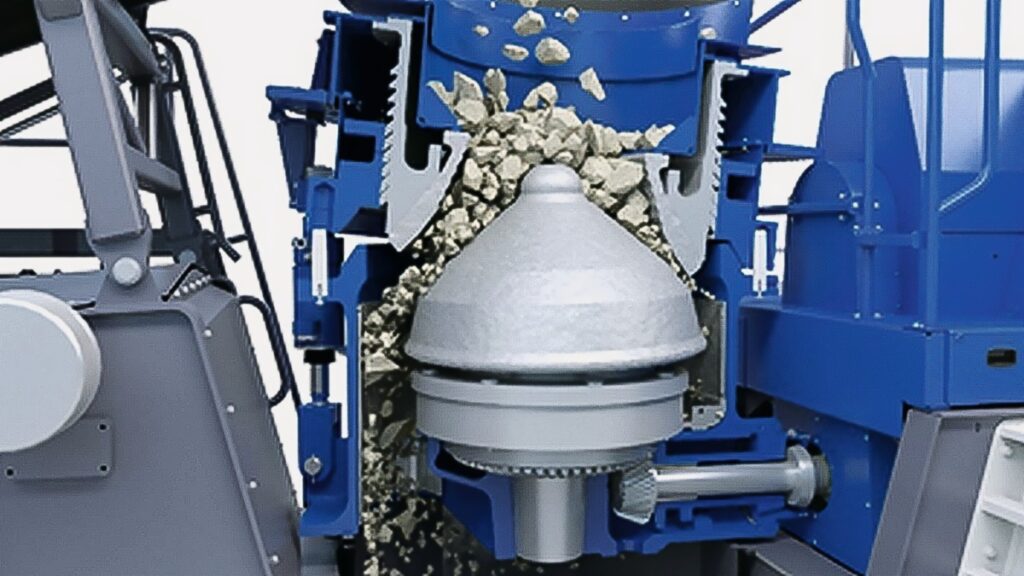The conflict between safety and efficiency is especially acute in the mineral processing industry. It is crucial for companies to guarantee that their tools run efficiently and safely. In this article, the author discusses the role of safety and efficiency in mineral processing equipment, offering guidance to B2B organizations seeking to enhance operations while minimizing risks to employees.
Contents
Importance of Equipment Safety
The first and foremost important factor that can never be compromised in any mineral processing business is safety. The operations in the mineral companies such as mining and processing are cumbersome and this poses various risks ranging from mechanical injuries to toxicology. It is vital to keep workers safe and minimize disruptions by making sure that equipment is safe to use.
For instance, it is possible to minimize the risks of an incident by ensuring that equipment is well maintained and properly designed. Maintenance checks, strict compliance with safety measures, and incorporation of high safety characteristics are essential. In the case of such applications like lithium mining used in lithium mining equipment, which is subjected to high operational pressure, safety of all used machinery is of primary importance. The problem is that the failure of any equipment is not only expensive in terms of time but can also result in tragic consequences.
Enhancing Efficiency Without Compromising Safety
Optimization of the mineral processing operations is not about making things go faster, but rather about making things go right with as little waste of time, effort and material as possible. However, this must not be at the cost of safety, which is an area in which many organizations have been accused of compromising in their search for greater efficiency.
An example of this is the application of cone crushers in the mining industry for the processing of minerals. Cone crushers are widely used due to their ability to produce a variety of sizes that can be helpful in the downstream processing of materials. However, for a cone crusher to run efficiently it requires frequent and proper maintenance; additional safety precautions like the use of an emergency stop button and an automated shutdown system in case of overloads are also necessary. Through incorporating these safety measures, it is possible to maintain the efficiency of the equipment in use while at the same time preventing accidents.
Another important element is operator training. The presence of modern and highly efficient equipment does not guarantee safety during its utilization in the course of work. Employee training that focuses on the proper utilization of tools and equipment as well as the safety procedures to be followed is critical. This is to ensure that the operators gain the highest output with the lowest probability of encountering any risk.
Advanced Technologies for Safety and Efficiency
The mineral processing industry has experienced technological developments that have improved both safety and productivity. For instance, automation has impacted most areas of mineral processing by minimizing the involvement of people in dangerous areas. Machines can track the status of equipment, determine possible breakdowns, and even shut down the equipment before an incident occurs.
Lithium mining is an area where the use of specialized lithium mining equipment is very important, and automation is especially essential in terms of safety and productivity. The use of automated drilling systems, remote-controlled machinery, and AI-based monitoring tools can help minimize human errors, which are common in mining operations and lead to accidents.
Additionally, technologies that enable predictive maintenance are also becoming prominent. Such systems employ sensors and data analysis to determine when the equipment is likely to develop a fault, hence enabling preventive maintenance to be done. This not only makes the operations efficient by eliminating any time that is not planned for maintenance but also makes the operations safer since all the equipment is always in the best condition.
Compliance and Best Practices
It is imperative for any company in the mineral processing industry to adhere to certain set regulations and standards as far as safety is concerned. To reduce risks, governments and industry bodies have set strict safety measures to guarantee that equipment is safe to use and processes do not harm workers or the environment.
It is not just about avoiding the pitfalls of failing to meet compliance standards but also about maintaining a good image that portrays the B2B company as reputable and responsible. The following strategies are critical; conducting yearly safety audits, safety training to the employees, and incorporating sophisticated safety measures in the industry.
In addition, safety implementation in the design and engineering of equipment is one of the best practices that are worth their cost in the long run. Manufacturers of equipment are paying much more attention to creating equipment with better safety standards that offer features that go beyond the normal safety measures such as better guarding, fail-safe measures and even user friendly controls to ensure that they minimize accidents.
The Business Case for Safety and Efficiency
Safety is not only a compliance or moral imperative; it is also sound economic sense. Reduced accidents mean less time lost in the process, lower insurance rates for the company, and a more efficient workforce. In cases where safety is coupled with efficiency, organizations can be able to realize improved production capacities without having to compromise worker safety.
When profit margins are low and operational costs high as it is in mineral processing, safety and efficient operation is critical for success. Businesses that focus on both are likely to develop strong business relationships with the clients, obtain investments, and have a good image among the market players.
For instance, in the lithium mining category, where the call for high-quality lithium mining equipment is on the rise, companies that are capable of providing safe and efficient solutions will be in a vantage position to reap from available market opportunities. In the same way, in operations that involve cone crushers, those that make sure that the equipment is both effective and safe will have to suffer less from downtime and, consequently, will be able to get more work done.
The balance between safety and productivity in mineral processing equipment is where successful operations are created. From a B2B perspective, the problem lies in guaranteeing that the equipment used is safe and efficient to a fault. Through the purchase of new technologies, strict adherence to industry standards, and strong compliance efforts, this balance can be achieved, resulting in safer workplaces and more financially lucrative business environments.
This is especially important in industries such as lithium mining where lithium mining equipment and cone crushers are critical to operations. Such companies will not only safeguard their employees but also improve their business performance and, consequently, achieve sustainable success in a challenging market.



